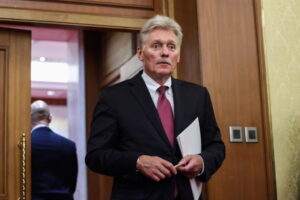Thirty companies, including US giant Meta (Facebook, Instagram), as well as researchers and associations, are calling on the European Union to “clarify” its regulations on artificial intelligence, in their open letter made public today.
“Europe has become less competitive and less innovative than other regions and is now at risk of losing even more ground in the artificial intelligence due to inconsistent decisions on the regulation of the sector,” the co-authors of the appeal said, expressing their concern, including Meta, the French advertising groups Publicis and Criteo, the Swedish streaming platform Spotify or even the French-Italian group EssilorLuxottica, the world leader in optical goods.
“In recent times, regulation has become fragmented and unpredictable,” they say, estimating that interventions by European authorities “have created extremely large uncertainties regarding the type of data that can be used to train AI models.”
Faced with this realisation, these companies are calling for European political leaders to “make decisions that are harmonised, coherent, swift and clear when it comes to data regulation within the EU.”
The authors of the letter say they echo former Italian prime minister Mario Draghi’s report on the EU economy, presented on 9 September in Brussels, which warns of an economic disconnect between the 27 and the United States and the need to “accelerate innovation”, particularly in the digital sector.
The open mission also calls for “radical change” towards greater European integration, but also for less bureaucracy.
At the beginning of August, new EU legislation to frame artificial intelligence, unprecedented globally, officially came into force, aiming to foster innovation in Europe while limiting potential derogations.
The new European legislation mainly imposes obligations on the various AI systems commensurate with the risks they represent to society.
Although this legislation will not actually be implemented until after 2026, some of its provisions will become mandatory from next year.
The target of appeals in eight European countries, social network X pledged in early September to no longer exploit the personal data of its European users to train its Grok artificial intelligence program.
In the crosshairs of eleven European countries, Meta for its part was forced to suspend in June its plan to use personal data of its users in an artificial intelligence program.
Ask me anything
Explore related questions





